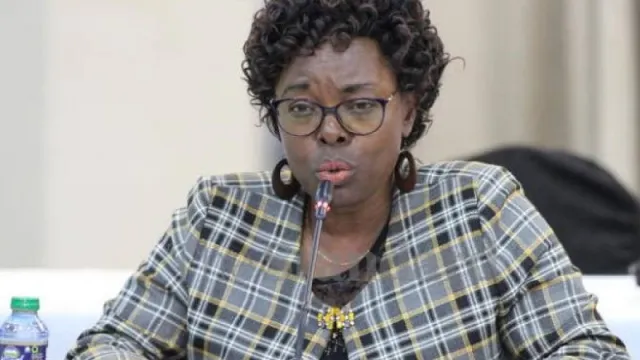Controller of Budget gets an earful from Treasury

Controller of Budget gets an earful from Treasury
The Treasury has faulted the Office of the Controller of Budget over allegations regarding Kenya's loan servicing rates from the International Monetary Fund (IMF) and the World Bank.
In a statement, Treasury Cabinet Secretary Prof. Njuguna Ndung'u, dismissed Controller of Budget Margaret Nyakang'o's claims earlier this week as "sensational" and "inaccurate," warning that such assertions could lead to confusion among Kenyans and strain relationships with valuable development partners and foreign investors.
The controversy arose when the Controller of Budget called for an audit of the financing received by Kenya from multilateral institutions, notably the IMF and the World Bank.
"Are the concessional loans really concessional? While it seems like a rhetorical quation, most of these so-called concessional loans might possibly be very expensive in the longrun and with a low impact in terms of economic devepment," Ms. Nyakang'o noted.
"My office recommends an audit of these loans and the projects they support to ascertain the effectiveness of these loans," she added in a statement titled "Promoting Prudent Financial Management in the Public Sector."
She went on to claim that her office's analysis showed that the annual interest paid for concessional financing had averaged 14.5 percent for many years. However, Prof. Ndung'u refuted these claims, stating that a review of data from both institutions revealed that the cost of their loans to Kenya ranged between 0 percent and a maximum of 6.74 percent (SOFR+1.44).
Read also: American retreat: Procter & Gamble to leave Nairobi in June
Kenya's debt with IMF
Prof. Ndung'u further clarified that Kenya's debt with the IMF stood at $2.68 billion, with interest ranging from no interest to 6.74 percent.
Similarly, Kenya's debt from the World Bank's International Development Association (IDA) window stood at $11.3 billion, with interest rates ranging from 0.35 percent to 1.39 percent per annum, the treasury explained.
Additionally, debt from the World Bank's International Bank for Reconstruction and Development (IBRD) window stood at $1.0 billion, with interest varying between 2.19 percent and 6.74 percent.
Prof. Ndung'u noted that the Controller of Budget has access to all loan contracts and underlying documentation maintained in the Public Debt Management Office, and these documents undergo annual audits by her office.
The roiling dispute on data between the Treasury and the Controller of Budget underscores the need for transparency and accountability in Kenya's public financial management, particularly concerning loans that have significant implications for the country's economy and development.



